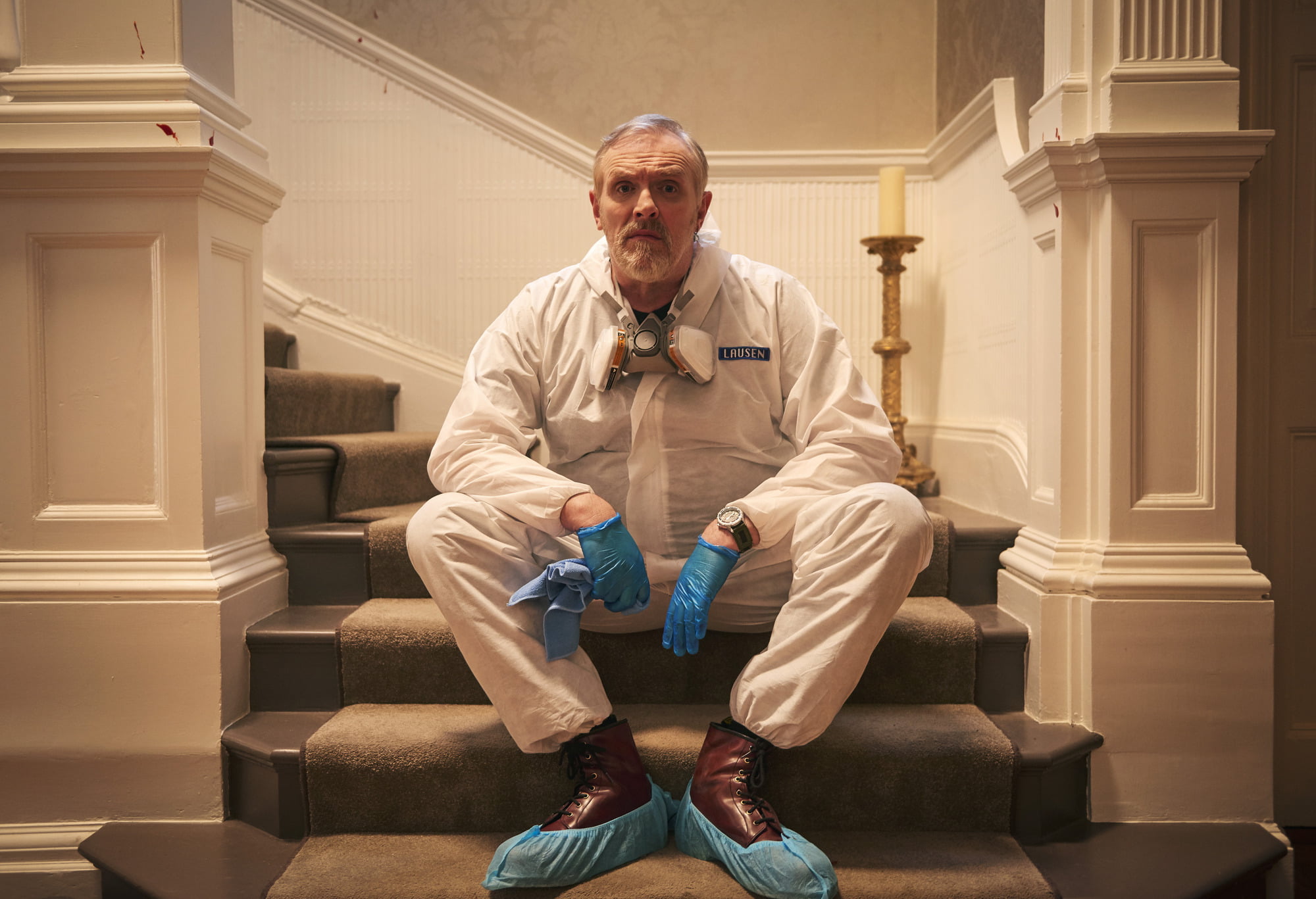Theme Festival - Comedy Drama

What’s behind the recent shift away from traditional sitcoms to hybrid comedy dramas and where is the genre heading next? Oli Hammett reports.
In recent years, the terms ‘comedy drama’ and ‘dramedy’ have become commonplace as the genres of comedy and drama undergo a creative fusion. Meanwhile, international hits such as After Life, Catastrophe and Fleabag are changing viewers’ perceptions of comedy by injecting stronger narrative arcs and serious issues.
C21’s International Drama Awards (IDAs) last year featured a comedy drama category, in which Feel Good, produced by the UK’s Objective Fiction for Channel 4 and Netflix, beat off competition from the likes of Breeders and Frayed on Sky.
Ben Farrell, chief creative officer at All3Media-owned Objective, says the genre is evolving rapidly: “The simplest way to describe dramedy at the moment would be comedies that you pitch to the comedy departments that also have an element of drama.”

However, Sofie Palage, producer of the also IDA-nominated Swedish romantic comedy series Love Me, made by Warner Bros International TV Production for Scandinavian SVoD service Viaplay, offers a slightly different interpretation.
“If you take out all the comedy elements of a comedy drama, it should work anyway. But if you take the comedy out of a comedy, you probably won’t have that much left.”
For producers, the definition of comedy drama comes down to the content of the show. For channel execs, however, it’s often a question of format and scheduling.
Jon Mountague, head of comedy at Sky in the UK, says: “Our show Brassic is an hour long and when we talk about comedy drama, we’re often talking about the length. Traditionally, we only classed half-hour shows as comedies, but recently we’ve seen a shift towards dramatic comedies in a half-hour space.”

One half-hour dramedy on Sky is the aforementioned Breeders, co-created by and starring Martin Freeman (The Office, Fargo). Mountague says the key to the show’s success is the fact the writers were inspired by their own experiences as parents. “A common denominator across all our titles is authenticity, which gives our shows a personal storytelling lens. That lens often takes you away from comedy and more towards drama, and we’ve seen a growing audience demand for these types of shows,” he adds.
The exec also points out that viewers are now more able than ever to communicate what they enjoy: “TV was, until recently, a top-down model. But now it’s become bottom-up, and that’s how it should be. Today, the audience dictates the shows it wants. And when you see comedy dramas across the board, it’s because there’s a sweet spot that audiences have responded to.”

Producers are proving nimble in picking up on the comedy drama trend. The UK branch of German prodco Studio Hamburg recently secured its first comedy commission from the BBC for Greg Davies-led series The Cleaner, a dark comedy about a crime scene cleaner interacting with the inhabitants of the houses he de-gores. Studio Hamburg UK MD Vivien Müller-Rommel says the balance of comedy and drama was crucial when pitching the show, which is adapted from hit German series Der Tatortreinige.
“Every episode of The Cleaner is about something, from veganism to art,” she notes. “Audiences expect that now. It’s not just about laughing out loud anymore – viewers want to explore wider issues and tackle tricky subjects.”
One consequence of the pandemic is that TV is becoming more global. The international sales business has benefited from both the production freeze and the flocking of audiences to streaming platforms. For a distributor, the first box to tick nowadays is whether a show will appeal to a global audience.
According to Nicola Söderlund, managing partner at Sweden-based distributor Eccho Rights, this need for global appeal is behind the recent tonal shift in comedy series. “There are very few recent examples of sitcoms that are successful internationally,” says Söderlund, whose firm holds international rights to Love Me. “From Eccho’s perspective, selling a sitcom is difficult, because they don’t travel easily. What people laugh at depends a lot on local nuances, many of which are lost in translation.”
It’s long been acknowledged that language and culture issues can be barriers when selling comedy programming, but it is also the case that audiences are now demanding more from comedy shows. The genre has adapted to the international market by bringing in elements of drama in order to provide more rounded characters and deeper narratives.

Even UK pubcaster the BBC has had to adapt to the international distribution market. Head of comedy commissioning Shane Allen says producing more comedy dramas has helped bring them to US-based streamers. “It’s easier to get foreign buyers on board with shows that are narrative-driven. Shows that travel well, like Back to Life and Starstruck, are more universal, relatable and conceptual, whereas we have other shows that feel very UK.”
Both Back to Life and Starstruck have something in common with many BBC comedy dramas in that they’re written by the lead actors – in this case, Daisy Haggard and Rose Matafeo respectively. Allen has identified a writer-performer dynamic as another aspect of dramedies audiences want to see. As well as the authenticity mentioned by Sky’s Mountague, Allen feels writer-performer series have more clout with viewers. “More than half our comedy slate is made up of writer-performer shows,” he says. “If someone like Catherine Tate comes to you with her next show and you know it’s going to be excellent, that’s a big advantage because she’s hugely popular.”

While comedy drama is important to the Beeb’s commercial arm, BBC Studios, in sales terms, Allen emphasises the pubcaster’s comedy department’s primary role is to serve its domestic audience. And he still feels there is room for traditional sitcom programming on TV. “We’re trying to keep a full range of shows that appeal to as many people as possible. My worry is that we end up not doing enough sitcoms. If you ask most people their favourite comedy shows of all time, sitcoms will make up most of their top 10.”
Allen cites the success of BBC1’s Mrs Brown’s Boys as an example that shows the sitcom is still alive and kicking. The show, which features a live audience and is about as far away from drama as you can get, regularly pulls in millions of viewers. Meanwhile, it beat comedy dramas such as After Life, Fleabag and Sex Education to Best Comedy at the UK’s National Television Awards last year.

Allen sees the mainstream family comedy slot on the BBC’s flagship channel as a top priority. However, he concedes that Mrs Brown’s Boys is far too British to have international appeal. He sees a variety of comedy programming – some dramatic, some traditional – as the way forward.
Many others, however, feel the cards are stacked against achieving success with new sitcoms, and Objective Fiction’s Farrell argues that comedy dramas are the natural next step in the genre’s evolution. Meanwhile, the enduring popularity of hits like the US version of The Office on streaming services makes it harder for new sitcoms to break out.
“There have been a lot of comedies that have been around for a long time. If you don’t like the new comedy that’s out there, you can stick on an episode of Father Ted or Fawlty Towers,” Farrell says. “That means it’s very hard for a new comedy to get oxygen. If a broadcaster spends a lot of money on something and no one watches it, it’s going to be looking for ways to get the audience’s attention and bring them back.”
With comedy dramas now established, how will the genre develop in the future? Studio Hamburg UK’s Müller-Rommel sees dramedy audiences growing as the genre becomes more widespread. “Various channels tell us that their audience likes slapstick because they’re older. I don’t agree with that. When I look at my parents and friends, even people over 70 like dark stuff as much as younger audiences.”

While the genre is typically defined as comedy with aspects of drama, Eccho Rights’ Söderlund sees the potential for drama to become lighter, rather than the other way round. “People are really fed up with darkness and they need some relief in their viewing,” he says. “For example, we’re currently launching a cop series with comedy elements in it and that’s what the market needs right now.”
Ultimately, the move from sitcoms to comedy dramas is an audience-led choice, with viewers telling producers, distributors and broadcasters what they want to see. As the TV industry becomes ever more global, this is leading to big changes for comedy and comedy drama. In future, the platforms that secure the most audience engagement will be those offering not just the biggest laughs, but also the most compelling narratives.